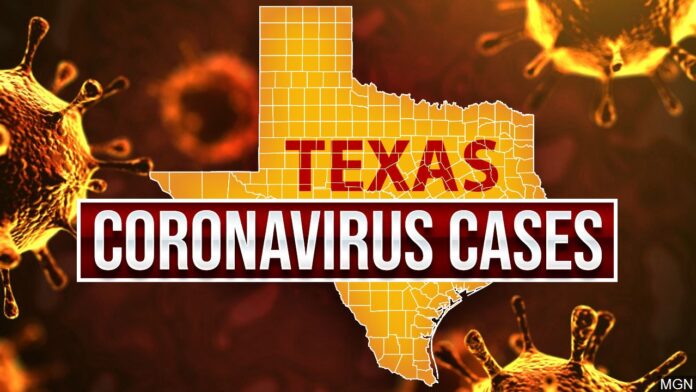The volume of testing for coronavirus remains far short of where it should be in Cameron County and elsewhere, rendering moot any talk of easing lock-down measures until the situation is addressed.
That’s according to Dr. Joseph McCormick, epidemiology professor, founder of the UTHealth School of Public Health Brownsville Regional Campus and director of the Hispanic Health Research Center, who was among the guest speakers at a Wednesday “telephone town hall” hosted by U.S. Rep. Filemon Vela, D-Brownsville.
“The testing issue continues to be a problem, and it is a major obstacle even to reopening businesses to a large degree, because we don’t have adequate testing,” he said.
The biggest problem across the board is a massive shortage of the reagent needed for the tests being used to check for infection, McCormick said.
“This is one of the major things that’s holding up the ability to expand our testing,” he said. “Right now we’re using criteria that involve whether people have symptoms or not as to whether they get tested, or whether they’ve been in contact with a known case. We would love to be able to expand that, but I don’t see that happening anytime soon, because of the lack of reagents.”
As of Wednesday Cameron County had 239 confirmed coronavirus cases and three related deaths. Texas had 15,492 cases and 364 deaths. The United States had 637,196 cases and 27,866 deaths. When it comes to testing, the United States is far behind countries such as Germany and South Korea, which has kept the number of cases and deaths to a minimum through early and aggressive testing. Germany, with 133,456 cases and 3,592 deaths as of Wednesday, has already announced plans to begin reopening its economy.
McCormick said another problem with U.S. testing is that about 50 percent of the rapid tests and antibody tests for coronavirus that were authorized by the Food and Drug Administration under an emergency-use provision don’t work, according to the National Academy of Science.
“They have now said that half of these tests are junk,” he said. “So now we have to sort through what’s good and what’s not good, and that’s going to take some time as well. There’s not any immediate good news on the horizon in terms of testing.”
McCormick praised efforts by county and city leaders to slow the spread of the deadly virus.
Vela said that so far Gov. Greg Abbott has not raised the issue of reopening the state’s economy in weekly phone conferences with state and federal elected officials, though he anticipates it will come up next time. McCormick, part of a UTHealth task force considering that very question, said “the answer is going to be complicated.”
“I would emphasis it needs to be driven by science, because I don’t think anyone wants to go out and get infected with coronavirus unknowingly, and I don’t think they want to be put in a position to take it back to their family,” he said. “This is the complication of opening up schools again, opening up businesses.”
He foresees the segment of the workforce that has already been infected and recovered being able to return to work, though even that depends on wider testing.
“Until we can get more testing, so that companies can test their employees for the coronavirus, it’s going to be complicated to be able to do this,” McCormick said. “There are clearly going to be companies where the risk of human-to-human contact is much lower. That may also play a role in how this is rolled out. But it’s clearly got to be very careful, in stages, with trying to figure out how to minimize the risk in the face of the fact that we just don’t have the testing, either for acute infection, or to be able to follow up to be able to see how many people have already been infected and are now presumably immune, having antibodies.
Noting that the virus has no political affiliation, he said the need to reopen the economy must be balanced against the best science available.
“Maybe we can figure out how to do this in small stages by using good science, getting more information about other people’s experience, and I think certainly we have to look at countries like China and South Korea, Taiwan and others where they are through it and are starting to reopen their businesses,” McCormick said. “We have to keep an eye out on what’s happening with them and whether we’re seeing (infection) recurrence.”
Meanwhile, smaller communities need to get rid of the notion that it’s safe to reopen because they may have relatively few cases, he said, pointing out that “waves are coming in different places at different times.”
“We saw that happen in South Dakota, where there was hardly anything being done to make sure people sheltered, and now they’ve got one of the nation’s hot spots,” Vela said.
A Smithfield Foods pork processing plant in Sioux Falls announced April 12 that it was closing indefinitely after hundreds of its employees became infected with the virus.
Vela noted that a huge percentage of the county’s coronavirus cases are clustered around two nursing homes in Harlingen, and said it underlines the high degree of risk of exposure in human-to-human contact.
“I’m here in my office right now alone, and I have all of my staff working out of their individual homes, and I’m going to do that until I hear from people like Dr. McCormick that the coast is clear,” he said.




